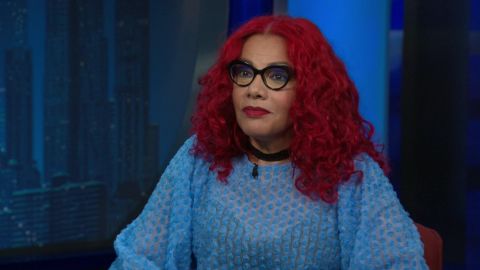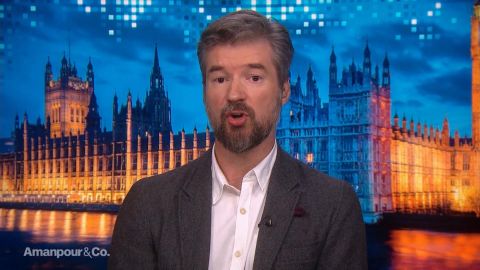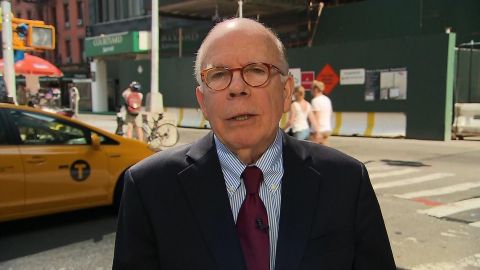Read Transcript EXPAND
CHRISTIANE AMANPOUR: I just want to ask you whether you think, given what the whistleblower’s redacted letter now shows, whether you think that there was an attempt even after this call and, you know, getting a heads up that this may be troublesome for the White House to potentially cover it up?
JOHN MCLAUGHLIN, FORMER CIA DEPUTY DIRECTOR: I think it’s pretty clear there was an effort to cover it up. If you read the complaint, which I think is very well done, and frankly, has CIA analyst written all over it just the way it’s written, the carefulness, it’s pretty clear that there was an effort to cover it up. And in fact, one of the things that jumps out at you is the effort by people in the White House, assuming the complaint is correct and I believe it is, to put this whole incident in a special compartmented channel under an official in the White House who is known as the director of intelligence programs. That’s a place where the most sensitive issues are handled. They’re put into code word channels, which means that not everyone can see them and you have to have special access to look at them. And clearly, that decision was made by a lot of people. And the other thing in the complaint, which is noteworthy, is the complainant here says this was not the only issue that was handled that way, as people described it to him. So, in a way, this whistleblower complaint is a road map, if you will, for further investigation. I mean, I could just list at least a dozen people whose testimony should be sought at this point. The other thing that jumps out at me is with so many people knowing about this, it’s interesting and I’m kind of proud to say this, it took a member of the intelligence community to step up and bring it forward.
AMANPOUR: John McLaughlin, the acting DNI director, Maguire, did say that he believed the whistleblower acted lawfully and that there wouldn’t be any reprisals.
MCLAUGHLIN: Yes.
AMANPOUR: Are you concerned that there might be reprisals? And just give me a few. You said I could think of a dozen people who should come forward and be questioned and get their testimony. Like who?
MCLAUGHLIN: Well, on the first point you raise, I have confidence in what Director Maguire said about his determination to protect the whistleblower from reprisals. I think I’ll take that to the bank. He will do that. On the other hand, all the controversy about this will inevitably discourage whistleblowing in the government generally and perhaps in the intelligence community. And so, efforts have to be made as this goes on to reaffirm the integrity of that process. So, on the people who ought to be called for testimony, well, you know, obviously you start with Rudy Giuliani
About This Episode EXPAND
Antony Blinken joins Christiane Amanpour to analyze the whistle-blower complaint at the center of the Trump impeachment investigation. Then, former CIA Deputy Director John McLaughlin gives his perspective on the case and New York Times reporter Declan Walsh discusses threats to journalism. Mona Eltahawy sits down with Michel Martin to explain her book “The Seven Necessary Sins for Women.”
LEARN MORE



